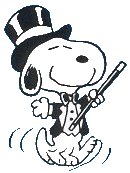The NBA Dress Code:Do clothes make the
man behave?
 The NBA is on the verge of
instituting--or,more accurately, re-instituting--a dress code for it's
players. Supposedly, part of the idea is marketing, to have the
NBA pretend that it's players aren't occasionally involved in felonious
assaults, drug charges, or other types of assorted mayhem by presenting
them as if they were in the MBA instead of the NBA.
The NBA is on the verge of
instituting--or,more accurately, re-instituting--a dress code for it's
players. Supposedly, part of the idea is marketing, to have the
NBA pretend that it's players aren't occasionally involved in felonious
assaults, drug charges, or other types of assorted mayhem by presenting
them as if they were in the MBA instead of the NBA.
The other part of this ploy is to try to get the players to behave as
if they were professional businessmen instead of, say,
professional athletes. The idea is that better apparel leads to
better behavior.
This is wrong on several fronts, so let's get to the reasons why.
First, there's a presumption that a person's wardrobe is somehow a
determining factor in how well or poorly they behave. There's
plenty of people who used to have money stashed in Enron's retirement
fund who don't buy that, since Ken Lay always looked dapper.
We've had several former Presidents of the United States that engaged
in what could charitably be called inappropriate behavior. There
have even been some people in military uniforms--surely an honorable
garb under most circumstances--conducting themselves in a manner
unbecoming a person, never mind a soldier.
So much for the well-dressed felon.
Now we look at the relatively underdressed examples. Mark Cuban,
so far as I can tell, always wears a sports jersey to games and he owns
the Dallas Mavericks. Mark may be occasionally bombastic, but I
don't know offhand that he's ever done anything untoward, though a few
people in the NBA referee corps might disagree :) . Charles
Schulz, whom even his few detractors always cited for his courtly
behavior, didn't even own a
suit, by his own description. He had one tuxedo for formal
occasions, but that was it.
So, we've established that dressing a certain way does not in and of
itself make a person more or less likely to commit a crime.
What really bothers some people is that players choose to go against
the social tradition of what people consider well-dressed. In all
my life, no one has yet managed to explain why anyone needs a tie,
unless there was a sudden explosion in the need for tourniquets in the
distant past.
I honestly don't see why someone wearing a clean t-shirt and jeans is
somehow considered less professional, less reliable, less hardworking
or less trustworthy than someone dressed in a suit. It's utter
foolishness to me. I've worked in places that had similar dress
codes, and I considered it foolishness then, too.
Certainly, some players take advantage of a relaxed dress code.
But it makes more sense to me to have a private chat with the
extremists and ask them to tone it down a bit. And it's not like
the old days were short on individualism. Bill Russell played in
the days of the old dress code and he sometimes wore--I kid you not--a cape. Red Auerbach thought
Russell looked great.
But overall, I'd be less concerned with what the guys wear than with
what they do. We've had some players involved in all sorts of
problems--sadly, no better or worse than some athletes in other sports
for the most part. We have people with drinking problems, drug
problems, and some even involved in situations ranging from domestic
violence to shootings. Why not put the effort into addressing and
remedying those problems instead of worrying that the guys aren't,
heaven forfend, wearing a sport coat or a tie?
Now, there are those who will say, correctly, that the NBA--and, for
that matter, individual teams--can tell players what to wear. But
for all the money they make, they're making a living playing a
game. Let's not get too involved in playing dress-up. If
people want to eliminate the more outrageous stuff, that's one
thing. But there's no need to start a sartorial stamping mold
that only one way of dress can represent a person, a company, or a team
in a positive manner.
Because we know that's not true. Clothes, despite the saying, do
NOT make the man--they just keep him from getting arrested for public
lewdness. :)

 The NBA is on the verge of
instituting--or,more accurately, re-instituting--a dress code for it's
players. Supposedly, part of the idea is marketing, to have the
NBA pretend that it's players aren't occasionally involved in felonious
assaults, drug charges, or other types of assorted mayhem by presenting
them as if they were in the MBA instead of the NBA.
The NBA is on the verge of
instituting--or,more accurately, re-instituting--a dress code for it's
players. Supposedly, part of the idea is marketing, to have the
NBA pretend that it's players aren't occasionally involved in felonious
assaults, drug charges, or other types of assorted mayhem by presenting
them as if they were in the MBA instead of the NBA.